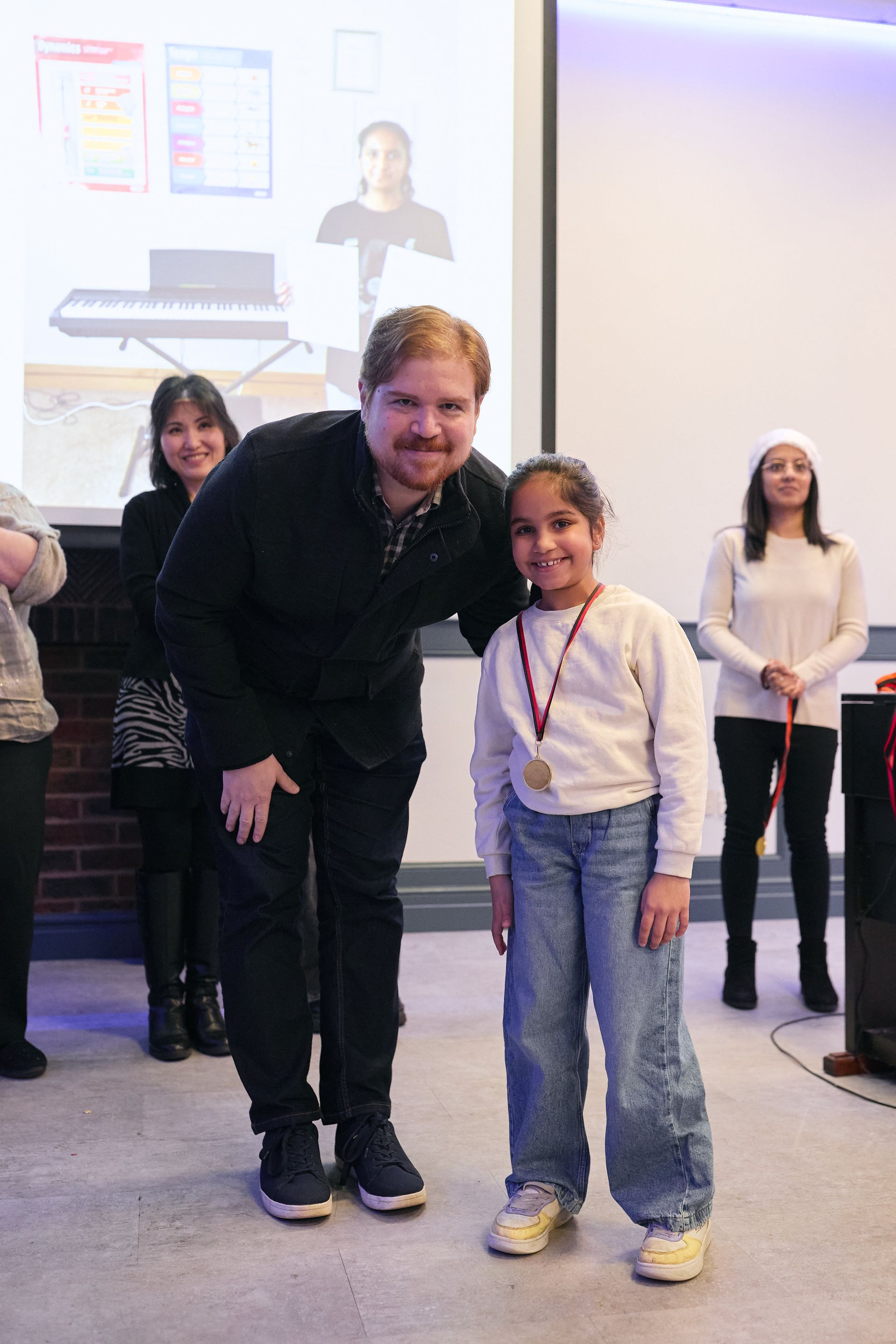The Pros and Cons of Piano Exams
For many young musicians, piano exams serve as both a motivator and a valuable benchmark of progress. These exams are designed to guide students through structured learning, helping them to set clear goals and develop important skills along the way. However, parents may wonder if exams are the right fit for their child. Below, we outline the primary advantages and disadvantages to help you decide if piano exams align with your child’s musical journey. Remember, your child’s piano teacher can also provide personalized guidance based on their unique strengths and goals.
Pros of Piano Exams
- Clear Goals: Exams provide structured goals, helping students stay motivated and focused on their progress.
- Skill Development: Exam preparation fosters critical skills, including sight-reading, technical precision, and performance confidence.
- Broad Repertoire: Students are introduced to a variety of styles and techniques, building a well-rounded musical foundation.
- Sense of Achievement: Passing exams or earning high marks can be a huge confidence boost, reinforcing students' commitment to piano.
Cons of Piano Exams
- Pressure and Stress: Exams can be stressful for some students, with performance anxiety potentially affecting enjoyment.
- Limited Repertoire Exploration: Preparing for exams may narrow students' focus to exam pieces, leaving less time for exploring music they love.
- Time Commitment: Exam preparation is time-intensive, often requiring students to prioritize exam pieces over creative exploration or improvisation.
- Risk of Perfectionism: Focusing on exam scores can sometimes lead students to prioritize technical perfection over genuine musical expression.
Summary
Choosing whether or not to pursue piano exams should be based on each student’s personality, goals, and learning style. Exams can be a fantastic tool for students who thrive on structure and enjoy working toward specific milestones, while a more flexible approach might benefit students who prioritize creativity and exploration. Discussing options with your child’s piano teacher can also offer helpful insights, as teachers can tailor their advice to support each student’s unique strengths and musical interests. Ultimately, the decision should aim to foster a lasting, positive connection with music.
Let us know how you get on by visiting: www.keysoundsuk.com/contact



